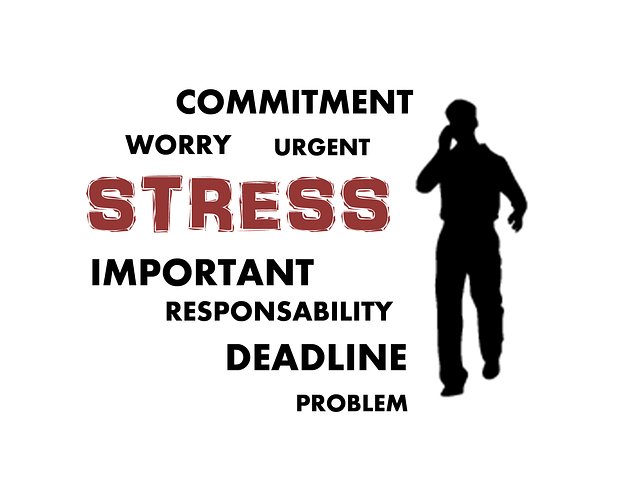 It’s once again that time of the season when we shut the door on the year past and look forward to what lies ahead.
It’s once again that time of the season when we shut the door on the year past and look forward to what lies ahead.
As a progressive leader who is highly tuned in to spiritual matters, you are probably wondering what trends and fashions might be specifically relevant for you in 2010. “Brad,” you might ask, “How can I maintain my coveted status as spiritually “in?” Ah. Well, thankfully you have the Shrinking the Camel blog to turn to in your time of need. What management fads should you be paying attention to? What is the next wave of insider biz-lingo that you can casually refer to in conversations at dinner parties and conferences? How will you maintain your spiritual leadership-cred in those cut-throat business circles that you travel so comfortably in? Well folks, here are my takes for 2010.
In: UniTasking
Out: Multi-tasking
The cat’s out of the bag. A big study from Stanford proved once and for all that multi-tasking just makes us stupid. So put down that damn i-phone and stop browsing your email messages while I’m talking to you!
The onslaught of mobile technologies and social media addiction is sucking up our attention in the virtual world while we are attempting to do other things in real life at the same time, and it is getting a little out of hand. Heated discussions about the pros and cons of multi-tasking have been brewing in the blogoshpere from the likes of The Brittanica blog, with experts weighing in such as Maggie Jackson, author of Distracted: The Erosion of Attention and the Coming Dark Age, and another by Nicholas “Google is Making Us Stupid” Carr. Continual multitasking, they say, prevents us from thinking deeply and synthesizing information, and weakens our ability to screen out the irrelevant. And really, how can we expect to be spiritually attentive to our surroundings when we are constantly pinging around between competing thoughts and tasks in our little heads? I think God wants you to pay attention to the person he’s put right in front of you during the exact moment you are there.
The solution? Unitasking, of course. A good post by intent.com on the Lost Art of Focus can point you in the right direction.
In: Trust
Out: Paranoia and Arrogance
Books like Trust Agents by Chris Brogan (on many business top ten lists for 2009) and The Trusted Advisor by Charles H. Green (an author I will be interviewing in a few weeks), David Maister and Robert Galford, are ushering in a new paradigm for how we do business. Instead of a zero-sum game of competing to win at all costs and then eating what you kill, these folks are initiating a hearty discussion on the forgotten role of Trust in business relationships. The idea of earning trust in order to do business sounds somewhat basic, dusty, old-school, even. I think this concept of trust in business got lost in the shuffle somewhere between 1972 and the Great Recession of 2008, as businesses hunkered down into quality and productivity tools like Six Sigma and Lean Manufacturing, while looking for new and exciting ways to boost profits. And then the Wall Street quant jocks also starting messing with, um – what did they call it? Oh yes, Complex Financial Instruments. Who needs trust when we are making gobs of money?
For businesses, operating from a Trust platform may mean displaying greater transparency and honesty, or having outright conversations with consumers, as opposed to one-way advertising. For service providers, it means looking out for others needs and interests above your own selfish ambitions. Yes, it’s back to the basics, folks. You are a person, I am a person, and – hey, here’s an idea! Let’s treat each other like people rather than commodities for trade and merchandise! Ultimately, it’s good business to earn trust from those you work with. Why? Because, more people will want to do business with you. It’s called a “good reputation,” and it’s becoming more important than eating what you kill. Which brings us to our next Hot Tip for 2010:
In: Embedded Generosity
Out: Embedded Hoarding
The green shoots of corporate generosity were starting to sprout in 2009 as you noticed more and more companies channeling dollars to needy non-profits, and it will get even bigger in 2010. Why? Because of a handy little trick called Embedded Generosity, which means companies are making charitable giving easy. Embedded Generosity incorporates any initiative that makes giving and donating painless, pragmatic, or even better, automatic. The idea is that you go on a web-site to purchase something from a brand that you love, and you are presented with an opportunity to collaborate with that brand to co-donate with them. Some examples:
- Australian Baby Teresa manufactures and sells a variety of 100% cotton onesies for babies, and, for each one purchased, donates another to a baby in need somewhere in the world.
- IKEA’s SUNNAN LED desk lamp is powered by solar cells. The product retails for USD 19.99, and for every unit sold in IKEA stores worldwide, another one will be donated to UNICEF to give to children without electricity in refugee
- TOMS Shoes donates a pair of shoes to a child in need for every pair they sell online. As of August 2009, TOMS has given over 150,000 pairs of shoes to children in need. TOMS shoes plans to give 1 million shoes by 2012.
- Servus, a Canadian credit union, began handing out CDN 200,000 in ten-dollar bills, giving 20,000 people the opportunity to create a Feel Good Ripple by spending the money on someone else. By pledging CDN 200,00 to the effort, the company hopes to start a ‘ kindness movement’ that will positively affect at least 20,000 people. Servus is distributing the bills through its branches throughout Alberta, and asking participants to write up stories of their kindness online.
In: Online community building
Out: Online personal brand-building
I, for one, am growing weary of the social media’s hype around the benefits of personal online brand-building. It is getting obnoxious and annoying. I am especially tired of seeing the same old folks tweeting and blogging too hard, desperately promoting themselves and their lame wares that come with their wannabe brand package. Instead I find myself migrating towards true online communities, like High Calling Blogs and Open Salon where ideas and opportunities are shared with people who I like, trust and have something in common with. Maybe it’s just me?
In: Zombies
Out: Vampires
I am not sure what exactly this has to do with spirituality and business, but Zombies are back in. Just so you know.
In: Something Other Than Zappos
Out: Zappos
Aren’t you just plain sick and tired of all of the hype and press around the online shoe company, Zappos? I’m going to throw up if I see another article gushing about this trendy darling of the new-media consumer. Enough, already! What I want to know is, how does anyone at that company actually get anything done when they are spending so much time travelling the world giving seminars, doing media interviews, and hanging out on social media sites? I am not sure yet what’s in, but I do know that it’s time to show Zappos the door and let some other up and coming online company have their 15 minutes.
In: Collaborative Capitalism
Out: Competitive Capitalism
There is a very healthy re-examination going on regarding the nature and role of Capitalism. Ken Kosta gave an excellent speech at Tony Blair Faith Foundation summit promoting a capitalism that does good for the sake of doing good. Fast Company wrote an article proposing an “Arms race of goodness” for businesses, as opposed to contrived marketing campaigns just to sell stuff. Umair Haque of the Harvard Business Review blogs is writing about some innovative ideas such as constructive capitalism and about the economics of good and evil. Charles H. Green wrote an excellent post on his Trusted Advisors blog site recently called The Evolution of Capitalism, where he taps the phrase “Collaborative Capitalism” as the new method of business. He defines it as,
“It’s true collaboration and trust, working beyond corporate walls and across companies. Many of us are seeing this trend at the same time.
Way back in 2002—a couple recessions or so ago—I wrote a little article called The Death of Corporations. It basically said companies who competed against each other were, to use Robert Frost’s metaphor, disappearing not with a bang, but a whimper, as commerce gradually begins to operate across and through companies, rather than in the form of mega-goliath companies clumsily “competing” against each other, spouting their platitudes.”
All this to say, something is blowing in the winds our way that is causing many business thought-leaders to check the motives of how we do business, and get to the bigger picture – a spiritually-based approach to doing business. I may be the only one who dares to call it for what it is – spiritual, but hey, that’s my schtick.
In: Gen Y Leaders
Out: Boomer Leaders
The Gen Y gang seems to have really taken off this year, with a big boost from the press, who won’t shut up about the social media-savvy of this particular demographic cohort – as if they are going to run the world from their Facebook Page? Come on. All the same, the business media has hyped and fawned non-stop over this crowd, spawning a rash of articles and blog posts for executives and HR professionals to hurry up and get with the program: “Learn how to manage the digital-millennial generation, because they will be your boss some day! The Gen Y workers are a different species than the crusty old paper-bound Boomer managers!” Blah blah blah blah, etc, etc.
I secretly think that the real reason Gen Y has received so much attention lately is because the digitial publishers have finally figured out that this demographic would be the most likely potential readers for their online sites, thus the best path to boost readership. So the media promotes Gen Y as the linked-in, future-connected entrepreneurs who will shape our world to come. And they are probably right. So get over your resistance, your jealousy and all the other evils of un-enlightenment and embrace the powers of their youth and beauty. Oh, and you can learn from their social media skills, too.
In: Being
Out: Doing
This year, you must accept the fact that you will become more productive and effective as a leader when you slow down, stop for a breather, and take the time to remember who you are rather than what’s next on your task list. Take a few minutes to meditate every day. Read some inspirational books, or a passage or two from scriptures. Just stop the noise from time to time and think about the bigger, more important world that goes on around you in the spiritual realm. Trust me, you will do better. Business is important, but people are more so. Your accomplishments matter, but your health, peace of mind and connection to God’s greater purpose for your life matter even more. So take some intentional steps to calm down and just do nothing for a period of time, and soon enough you will hear that still small voice of God, and you will remember that life in 2010 is about so much more than your business and your career.
And regardless of your circumstances in 2010, don’t forget to breathe.











